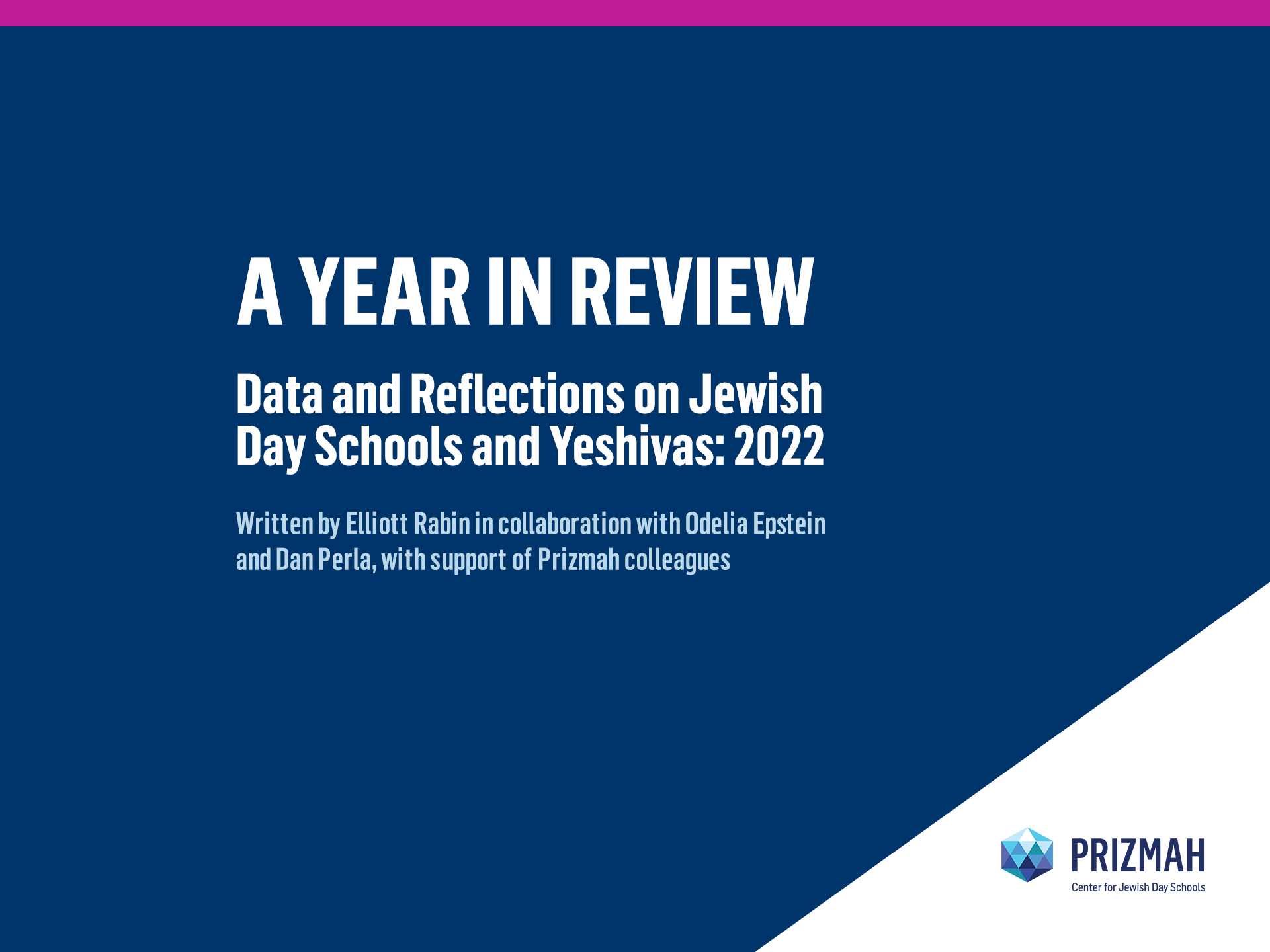For most schools in Prizmah’s network, 2020-21 was a year of remarkable accomplishments in the face of unprecedented challenges. Following upon the Covid closures at the end of the previous school year, this was to be a year when we just needed to survive, to try every possible method of holding school in person, when allowed, of keeping students and teachers safe and healthy, of retaining students despite the obstacles to normal learning, of finding the funds and funders for the school to continue and pay for all of the needed upgrades. Instead of just surviving, many schools found themselves going above and beyond their most optimistic expectations: not just keeping students healthy but having no transmission; drawing many new students, with some schools reaching capacity and above; working collaboratively to care for student wellbeing at an unprecedented level; enabling students under quarantine and others who were immunocompromised to participate online; preserving the strong sense of community, of communal connection, support, celebration and joy; tapping into donor enthusiasm for the school and eliciting wellsprings of response especially among the school’s core funders.
By contrast, this school year, 2021-22, raised the question of where our schools would land, especially with Covid abating thanks to the vaccines. All the students who transferred into Jewish schools–would they stay there or return to their previous schools? Would new students be drawn to our schools when parents saw how well we managed during the crisis? Would fundraising momentum wane during a more normal time? And would the pressures that Covid exerted on school professionals, including teachers, administrators, counselors and more, start to manifest themselves in burnout, mental health challenges and resignations?
By and large, as this report will demonstrate, the answers have been resoundingly positive. Students and their families loved what they found in their Jewish schools, and they not only stayed, they spread word to their network of friends. The pool of funders grew, and fundraisers returned to focus on conducting campaigns for endowments alongside annual drives. School leaders, faculty and other professionals have tried to recenter their lives to bring healthier work-life balance, establishing needed boundaries and taking time to rejuvenate themselves and their families.



